The Real Impact Awards celebrate those in the research community who go above and beyond to make a difference in their communities or wider society.
From over 70 entries submitted in 2021, below are the chosen winners and highly commended entries and their inspiring stories about the contribution they are making to the world today.
Congratulations to them all.

Interdisciplinary Research Award
Rewards an innovative research project that promotes action on the UN Sustainable Development Goals/global challenges.
Winner
Research project: Welcome to the Syrian Farmers Podcast! Promoting sustainable agri-food value chains in Syria through podcasting
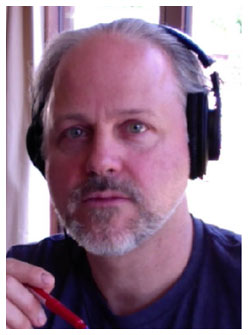
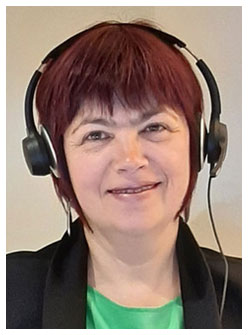
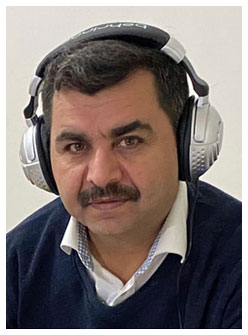
Left to right: Professor Martin Spinelli, University of Sussex, UK | Dr Mirela Barbu, University of Sussex Business School, UK | Dr Shaher Abdullateef, Syrian Academic Expertise
Prioritising agricultural sustainability
In Syria, the support services in place for agricultural sustainability have collapsed due to the ongoing civil war. This has weakened the resilience of the country’s agricultural production and created new vulnerabilities in the internal food supply.
To address this issue, Dr Mirela Barbu, University of Sussex Business School, UK Professor Martin Spinelli, School of Media, Arts and Humanities, University of Sussex, UK and Dr Shaher Abdullateef, Syrian Academic Expertise (SAE) identified a need for capacity building in the region. Together, they launched the Agricultural Voices Syria podcast. This project was implemented with support from Cara Syria Programme and was funded by the SSRP (Sussex Sustainability Research Programme).

The three main aims of the project were to use Syrian agricultural expertise to support Syrian farmers, to encourage their participation with the purpose of providing expertise to target their needs, and to provide case studies of successful practices in agri-food value chains to inform a range of decision-makers in northwest Syria. Through this work, the team hopes to help Syria’s farming community improve productivity, learn sustainable agricultural techniques and build networks with local institutions and organisations.
The research team surveyed a large farming community to understand their needs and how they use social media. This helped identify content for the podcasts. They then produced the podcasts and prepared case studies on agri-food value chains which drew upon examples from the Mediterranean and Middle East areas. This provided local experts with examples of how similar problems had been addressed by neighbouring countries.
The resulting engagement with the podcast series was higher than expected, and feedback from farmers and agricultural experts played an important role in organising dissemination and improving services. The initial plan was to produce 10 episodes and reach 600 farmers in northwest Syria, but ultimately 15 episodes were produced during the project and reached 1,200 farmers during the promotional campaign alone. In May 2021, 600 new users accessed the podcasts weekly. Agricultural Voices Syria currently has 6,000 regular users and has recorded 12,500 downloads since its launch. An additional survey has also found that 76% of users are first-time podcast listeners. The Syrian agricultural experts have continued to produce podcasts, an additional 15 episodes to date with more in production.
A practical approach to impact
The team credit their impact-orientated approach which involved careful monitoring at the implementation stage and ‘learning through doing' as key reasons for their results. On the importance of impactful research, Dr Mirela Barbu said: "Impactful research brings solutions to challenges faced by our planet, people and institutions. Providing a strong link with real-world challenges, impactful research helps scholars to continually update their interests and inquiries."
Food security continues to be a vitally important issue, and a key objective under the UN Sustainable Development Goals (SDGs) before 2030 is to, "End hunger, achieve food security and improved nutrition and promote sustainable agriculture". Dr Barbu believes: "It is important that researchers focus on the implementation of the UN SDGs that represent the most important internationally agreed commitment towards collectively addressing global challenges." Through this work, Dr Barbu and her team have contributed to improving food security in Syria, which will ultimately help reduce the number of people worldwide who still suffer from hunger.
Highly commended
Research project: Improving water supply systems resilience to floods: developing a measurement tool for Tanzania
Improving outcomes to water supply systems in flood situations
The sixth UN Sustainable Development Goal is to ensure access to water and sanitation for all.
While progress continues to grow in this area, billions of people still lack these basic services.
In Tanzania, this issue is particularly complicated as the country suffers from reoccurring flooding. This inhibits local peoples access to safe and affordable drinking water and sanitation.
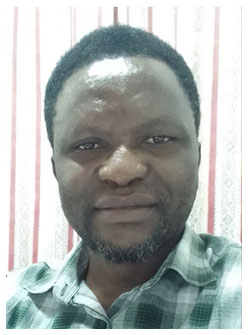
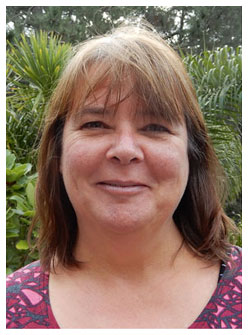
Left to right: Dr Lukuba Ngalya Sweya, Ardhi University, Tanzania and Professor Suzanne Wilkinson, Massey University, New Zealand
Dr Lukuba N Sweya from Ardhi University, Tanzania, and Professor Suzanne Wilkinson from Massey University, New Zealand, have been working to address this problem by assessing the resilience of the Tanzanian water supply system. Their highly commended research diagnoses the key problems and proposes solutions, so a more sustainable water future can be achieved.

Driven by a commitment to impactful research, the team identified the need for a resilience measurement tool that was comprehensive, qualitative-based, and multi-dimensional. Dr Sweya said: "Impactful works have a direct influence on the end users, and this is what every researcher should want to see. So being committed to research drives high intentions and brings changes so that end users benefit from the excellent works from the researchers."
The team’s project went on to develop a practical tool that is consistent and appropriate to addressing the unique problems facing the Tanzanian water supply system. It considers the technical, organisational, social, economic and environmental aspects – that is resilience based in the development and management of water supply systems. It is also the first tool of its kind to focus on water supply systems solutions in a developing country.
This multi-dimensional assessment tool works by evaluating measures for improving water supply systems resilience and proposes an appropriate implementation plan that can then be used by the water supply and sanitation authorities (WSSAs). Assessors can evaluate the resilience in one or more dimensions depending on their preference and data availability. The approach is qualitative, flexible, encompasses minimal computational requirements, is easy to implement, and can be applied with complete or incomplete data sets. This makes it useful in wider resilience assessments. In addition, the validity of the tool has been measured through content validation, applicability, and generality testing in selected water supply systems.
Causing waves of change
The project is already starting to influence change. The Morogoro Urban Water Supply and Sewerage Authority are realising the potential of using the research outputs and other water authorities have invited the team to present the outputs to their management committees. Commenting on the success of the project, the team said: “It is a great pleasure to see your work influencing change”.
As the results of the research need to reach various stakeholders, including water managers, decision-makers, NGOs, and funders to be impactful, Dr Sweya highlights the importance of making research open access. “Reaching out to these groups would improve the implementation of the project outcomes in terms of applying the tool for resilience assessment more widely and allow consideration of resource prioritisation for building resilient systems,” he said. In addition, “Implementing resilience building activities needs funds, thus, there is the need to reach out to donors to secure grants that would support the WSSAs’ efforts to build resilience in their systems. Moreover, the outcomes need to reach the researchers, who would build on the project findings to further improve the water supply systems.”
Research project: Gradient Concrete // Resource- and emission-reduced concrete building construction system
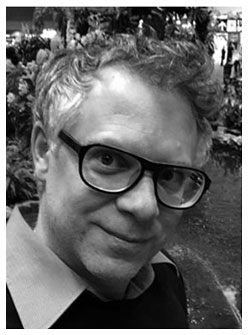


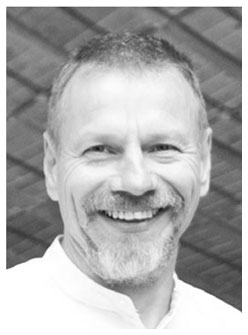
Left to right: Dr Ferdinand Oswald, The University of Auckland, New Zealand | Professor Lucio Blandini, University of Stuttgart | Professor Werner Sobek, University of Stuttgart | Dr Walter Haase, University of Stuttgart, Germany.
A problem with building sustainably
We are living in a concrete age, but concrete is not a sustainable product. Human-made materials now outweigh the Earth’s entire biomass, and in building construction, the concrete elements typically account for 70% of a structure's total weight.
Concrete is especially unsustainable when compared to the carbon emission and energy manufacturing consumption of all other building materials. Despite this, the need for concrete houses in the world is increasing.

Professor Werner Sobek, Professor Lucio Blandini, and Dr Walter Haase from the University of Stuttgart, Germany, along with Dr Ferdinand Oswald from the University of Auckland, New Zealand, believe that gradient concrete could be used as an environmentally kind alternative to standard concrete.
Current concrete construction systems involve multiple layers and insulation, making it difficult to recycle. Gradient concrete however is 60% lighter and produces anywhere between 45-60% fewer emissions than standard concrete. It is a purely mineral, multifunctional, mono-material element that is both recyclable and has natural insulation properties.
The Gradient Concrete Team is developing sustainable building concrete solutions that are practical and research-based by adapting the existing gradient concrete design to local requirements. They explore specifications for geotechnical and environmental conditions and consider factors such as local climate and chances of earthquakes. In addition, the team has developed the connection details for how the floor plate and wall can connect for gradient concrete components. This has never been done before. The project has helped the construction industry to understand innovative gradient concrete and how to best put the solution into practice.
A concrete solution
The potential reach of a project of this type is broad as the project delivers real impact to several UN Sustainable Development Goals (SDGs). This includes affordable and clean energy (SDG 7), sustainable cities and communities (SDG 11), and climate action (SDG 13). "The functionally graded concrete project has strong potential to make an impact globally and to be part of a solution to reduce climate change by reducing mass consumption for the production of buildings and infrastructure," said Dr Oswald.
One key aspect of the team’s success has been their transdisciplinary collaboration. The team comprises of architects, structural engineers, and experts in earthquakes and concrete. "The transdisciplinary approach in knowledge fusion of engineers and architects drove us to successful outcomes," notes Dr Oswald, adding that "the cooperation between Germany and New Zealand makes an important commitment to impactful work". The project, however, was not without its difficulties, as the COVID-19 pandemic made it impossible for the team to meet in person. Post-lockdown, the team are looking forward to seeing each other soon.
Commenting on being selected for an impact award, the team said: "It is a great honour for us to be recognised by Emerald. We also see the honour as confirmation of the social relevance of our research idea. We are grateful for every research idea that we have got from academic databases, our colleagues, and our teaching experience." On advising other researchers on starting their impact journey, Dr Oswald said: "Reach out to different stakeholders and companies to identify economic or environmental issues that may be addressed through your research expertise".

Mobilising Research into Action
Recognising the efforts and commitment being made to meaningfully connect research and action to deliver societal change, with a special focus on Equality, Diversity and Inclusion.
Winner
The Blood Borne Virus Prevention Research Team, Glasgow Caledonian University, UK
Reducing harm through co-creation
The Blood Borne Virus Prevention Research Team, based at Glasgow Caledonian University, Scotland, is a specialist team who focus on reducing inequalities in blood borne virus prevention and sexual health. Their efforts align with the World Health Organization's goals to end AIDS and eliminate viral hepatitis as a public health threat by 2030.
The team work collaboratively with marginalised communities and focus on people who inject drugs (PWID).
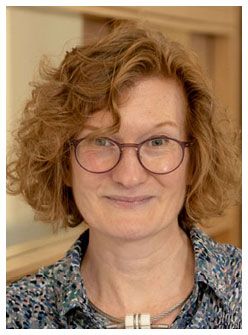
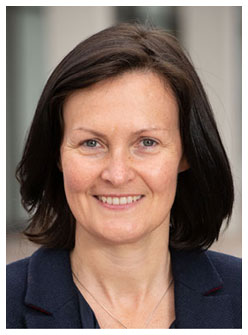
Left to right: Professor Claudia Estcourt, Glasgow Caledonian University, UK and Professor Sharon Hutchinson, Glasgow Caledonian University, UK
Their research aims to identify patterns of infection and engage people who inject drugs with care and prevention.
The team adopt a co-creational method and are in close partnership with several bodies including the Scottish Government, Public Health Scotland, the European Centre for Disease Prevention and Control, the World Health Organization (WHO), the NHS, and various third sector organisations. This collaborative approach "ensures translation of research findings into health policy and practice".

When asked why it is important to strive for impactful research, speaking on behalf of the team Professor Claudia Estcourt and Professor Sharon Hutchinson said: "Research is how we expand knowledge, but knowledge in itself does not affect change. While seeking to fill knowledge gaps we must always be looking to the 'So what?’– i.e. How will this research benefit others? This can only be achieved by thinking through pathways to impact from the very start."
Impact is integral to the team’s research process. Their multidisciplinary work informs several multi-layered initiatives such as increasing access to harm reduction services, launching Scotland’s first heroin assisted treatment service, and introducing an enhanced model of HIV care involving outreach nursing and community prescribing.
Professors Estcourt and Hutchinson believe that it is important to disseminate research findings early to key stakeholders as this helps with implementation planning and informs future research direction. This approach has resulted in numerous outputs. For example, their work on hepatitis C research has yielded evidence to guide Scotland’s public health response. It is cited as an example of best practice by the Global Commission on Drugs, Scotland’s evidence-based approach which was the stimulus for WHO staging their inaugural World Hepatitis Summit in Glasgow.
Generating real impact
The team’s HIV research has revealed the extent and nature of the largest outbreak among PWID in the UK for over 30 years. Their work has also underpinned the rollout and evaluation of Scotland’s HIV Pre-Exposure Prophylaxis (PrEP) Programme, one of the first programmes of its kind worldwide. The PrEP programme has also resulted in the delivery of national PrEP training to healthcare professionals in Ukraine and other countries with high HIV prevalence in PWID.
The team has gained its numerous successes and outputs despite delays in programme delivery due to the outbreak of COVID-19. "For some months, all non-COVID related NHS research paused," explain Professors Estcourt and Hutchinson. "Due to our skills and experience in undertaking epidemiological studies, much of the blood borne virus prevention research team were seconded to support Public Health Scotland in their response to the pandemic."
Reflecting on winning a Real Impact Award, Professors Estcourt and Hutchinson said: "We felt immensely proud of our research team members who over many years have worked tirelessly to develop and deliver high quality impactful research. It was wonderful to have such a prestigious external marker of recognition."
Highly commended
White Water Writers
Giving a voice to the underrepresented
Lack of diversity is one of the biggest problems in the publishing industry. In the 2015 report, 'Writing the Future: Black and Asian Writers and Publishers in the UK Market Place' it was found that Black, Asian, and Minority Ethnic (BAME) authors were less likely to be published or have an agent.
Authors were also pushed to have their characters match cultural stereotypes.
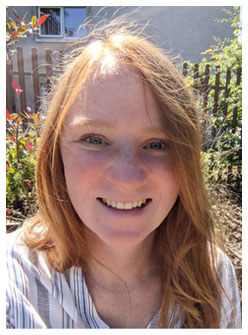

Left to right: Dr Yvonne Skipper, University of Glasgow, UK and Dr Joseph Reddington, eQuality Time, UK
In addition, the 2015 Diversity Baseline Survey Results found a massive under representation for disability at all levels in the publishing industry. At the same time, published writers are more likely to be privately educated and to be older.
White Water Writers are committed to changing this situation. Their programme brings together 10 writers who, through a set of exercises, collaboratively write and publish a novel within a week. Most authors are aged between 11 and 16 and are from lower socioeconomic backgrounds and minority ethnic groups.

Authors include children with special educational needs and disabilities (SEND), care experienced young people, young and adult offenders, and siblings of terminally ill children. It is the only initiative in the world that works with young people to give them the opportunity to produce a full-length novel.
Dr Yvonne Skipper from the University of Glasgow, UK, and Dr Joe Reddington from eQuality Time, UK speaking on behalf of White Water Writers said: "Young people's voices are not typically heard in the publishing industry. Our novels explore important topics such as bullying, inequality, climate change and the power of community and provide a window and voice for our authors to write about the things that matter most to them."
Every author has the responsibility for a character in the story. This increases engagement with the task as each writer has control over their character. They can design a character who may share characteristics and experiences with them, increasing the diversity of the characters in the novel. The team added: "There should be no gatekeepers of imagination. Every child that loves books should be able to feel like they can write them".
Creative solutions with positive outcomes
During the pandemic the team had to rethink their delivery of the workshop and developed a way of running the programme online. This allowed them to work with geographically diverse groups. In addition, they worked with the Princes Trust to help a group of individuals from across the UK who were not in education, employment or training (NEET).
White Water Writers have helped their authors to publish over 200 novels. They have worked on three continents, in multiple languages and with a variety of writers to help more than 2,000 people become authors. Two participants have also continued their careers in writing. One has successfully applied for follow-on writers grants, and another has published their own novel. Previous participants in prisons have also been leading their own writing groups within the prison setting to help others produce their own stories.
On defining impact, Dr Yvonne Skipper and Dr Joe Reddington said: "Impact is ensuring that the work we do in the academy leads to real world and tangible change. This is why our approach is to focus on co-creation, working in partnership with others. Our work balances what we know in academic research along with what is happening in practice in order to design meaningful projects which have long term positive impact."
Finalists
Making a difference for the next generation of children with Cerebral Palsy
Professor Sue Stott and team, University of Auckland and Starship Children's Health, New Zealand.
Driving societal change by ensuring local and indigenous people drive climate change adaption (CCA) actions
Dr Sandeeka Mannakkara and team, University of Auckland, New Zealand.
Addressing the unequal playing field for Canadian Muslims in the not-for-profit sector
Zaid Khan and team, Institute of Islamic Studies, University of Toronto, Canada.

Driving the Impact Agenda
Celebrating the efforts and commitment to strategically embed impact within a research environment or to drive impact culture.
Winner
Romanian Economic Monitor, Babeș-Bolyai University, Romania
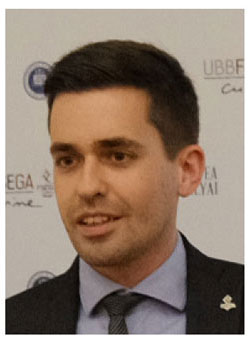
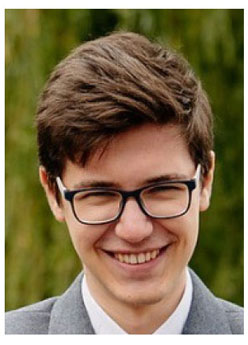
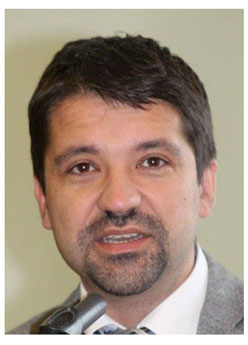
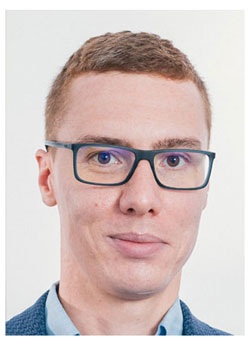
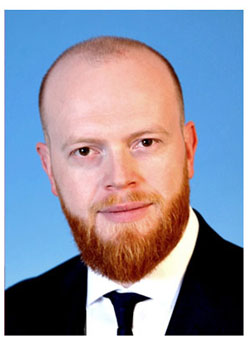
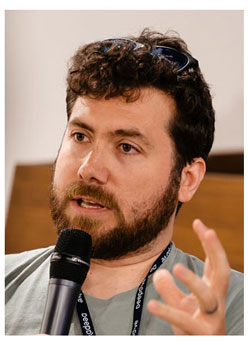
Left to right: Professor Levente Szasz, Ottó Csíki, Bálint Zsolt Nagy, Béla-Gergely Rácz, Babes-Bolyai University, Romania | Csaba Bálint, National Bank of Romania and Babes-Bolyai University, Romania | Dénes Csala, Lancaster University, UK, and Babes-Bolyai University, Romania
Fighting fake news during the Coronavirus pandemic
Misinformation and fake news were a common problem during the coronavirus pandemic. In Romania, these challenges kept reappearing with increasing intensity as newer waves of the COVID virus hit the region. Several researchers from Romania's Babeș-Bolyai University recognised an urgent need for accurate information to reach decision makers quickly and effectively. Combining cutting-edge data visualisation techniques with economic analysis and forecasting tools, the team developed a daily-updated online portal and social media interface named the Romanian Economic Monitor.

Speaking on behalf of the team, coordinator Professor Levente Szász said: "The main purpose of the monitor was to offer support to economic and policy decision makers in Romania by providing a precise and regularly updated analysis of the pandemic-related situation, and by offering background studies for the development of forecasting scenarios".
By combining advanced data visualisation techniques with high-frequency statistics, the monitor quickly became a user friendly, comprehensive, and credible source of information for the public. Professor Szász noted prior to this development that, "this real-time connection between scientific research, on one hand, and decision makers and the public in general, on the other hand, was missing entirely from our research system". To further support this direction, the team established an office in direct connection with representatives of the mass-media. This enabled real-time information on the most pressing issues of the pandemic to reach an even wider audience.
Commenting on how impact can drive success, Professor Szász said: "Given the fundamental role of scientific research to serve society, impact should actually be a key measure of success. Currently applied measures, such as citations and other derived metrics, are not suitable to fully capture true impact within our societies. Nevertheless, universities and academic institutions are transforming towards focusing on the real societal impact they are creating. This impact should drive the success of these institutions and each individual member of the academic community."
Global reach, local impact
Since its launch in April 2020, the Romanian Economic Monitor has generated over 480,000 page views and reached 530,000 people through social media. The monitor has had a total of 754 appearances in mass-media, including coverage in popular national and international channels such as the BBC. In addition, the project has won the COVID-19 Flattening the Curve Data Challenge international prize, organised jointly by several US-based organisations including Georgetown University, Washington DC.
The content generated and shared through the monitor tool has proven to be vital in forewarning and decision making throughout the pandemic. For example, the forecasting tool predicted three weeks in advance that the fourth wave of the pandemic would likely generate the highest incidence rate so far in Romania. In addition, the data guided Romanian schools and universities in the mode of teaching activities, with forecasting results giving sufficient time for many institutions to prepare for hybrid or online teaching.
The team behind the monitor at Babeș-Bolyai University represent the only research institution in the country that offers publicly available pandemic-related economic analyses and forecasts. As the impact of the pandemic on the economy lessens, the team has moved towards investigating the effect of the Ukraine war on the Romanian economy.
Highly commended
Dr Faith Welch, University of Auckland, New Zealand 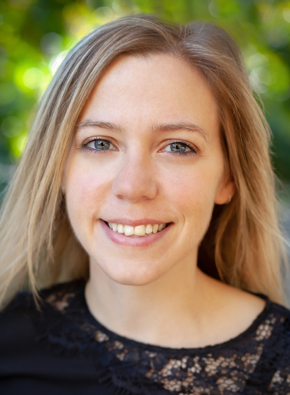
Paving the way for future researchers
In recent years, the concept of impact has become increasingly important to the research ecosystem in New Zealand. In mid-2017, the Ministry of Business, Innovation and Employment launched a national dialogue through the discussion paper titled, The Impact of Science.
In 2018, the Health Research Council revamped the assessment of grant applications to emphasise pathways to impact, and in that same year the Tertiary Education Commission began a review of the New Zealand Performance-based Research Fund with a strong emphasis on assessing impactful research.
In addition, in 2019, the Ministry of Business, Innovation and Employment published The Impact of Research, announcing actions to drive a national agenda. Progress then abruptly stalled due to the COVID-19 pandemic. However, despite the setbacks, the University of Auckland has been able to continue advancing its initiatives through the work of Dr Faith Welch.

Dr Faith Welch is the inaugural Research Impact Manager at the University of Auckland, New Zealand. She is paving the way for future researchers by developing the institution's organisational research impact strategy.
Reflecting on the stall in wider government recognition of research impact initiatives, Dr Welch said: "We've seen this as a fantastic opportunity to initiate a community driven impact culture without the limitations of governmental directives or assessment".
Out of the philosophy that, "efforts should focus on developing the appropriate environment to enable impact to thrive before measuring outcomes" Dr Welch's focus has been to create accessible networks for the institution's academic and professional communities. The end goal is to empower the researchers in developing and driving impact culture themselves.
A three-tiered approach
Dr Welch launched three initiatives. First, the University of Auckland Research Impact Community of Interest Group (RI-COI). With over 130 members, the group actively codesigns new initiatives, contributes to internal and national consultations on impact agendas, shares best practice to inspire colleagues, and has accelerated an institutional understanding and culture of impact. Next, Dr Welch recognised the need for a new special interest group at the Australasian Research Management Society (ARMS) and launched the Research Impact Special Interest Group (RI-SIG) in 2019. It is now the largest of the ARMS' special interest groups and boasts over 260 members from across Australasia. Finally, Dr Welch began the Impact through Culture Change webinar series. This series is open to all interested in driving the research impact agenda through the perspective of organisational change. “We seek for all forms of impact to thrive, opportunities to be equitable, and success at all scales to be celebrated,” notes Dr Welch.
These three initiatives contribute to develop the country's research impact culture through sharing best practice, linking with international expertise and audiences, and connecting people and stories together. "I am so inspired by the amazing work done by the researchers around me and am grateful that I get to be a part of their impact journey and make a contribution, however small, to making a positive difference to the world," said Dr Welch.
To other researchers looking to develop their impact journey, Dr Welch recommends: "Whether you are an academic or an impact professional, reach out to your peers, take them for a coffee and learn from their experiences. Find networks that are sharing best practice and who you can bounce ideas off. Find your impact support team!"
Finalist
Mark Reed
Fast Track Impact and Scotland's Rural College (SRUC), UK.

Library Commitment to Uncovering Real Impact
Recognising the efforts and commitment within the library setting to uncover real impact.
Highly commended
Phuntsho Norbu, Khesar Gyalpo University of Medical Sciences of Bhutan 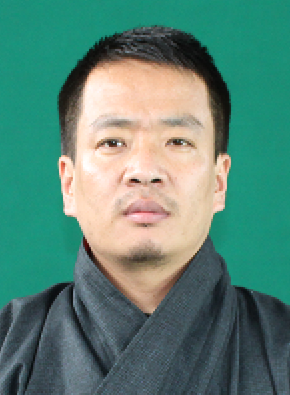
Ensuring access to high quality research in a developing nation
Developing countries need access to high-quality and up to date information to impart quality education, make evidence-based decisions, and to generate creativity and innovation in their region.
Resources and services provided by libraries play a critical role in this, and the effective use of knowledge can help achieve national development goals.
Unfortunately, the increasing subscription costs of scientific literature means that libraries cannot always provide adequate resources. This widens the knowledge gap and information literacy skills of academics, researchers, and students in developing regions compared to those in developed regions.

Phuntsho Norbu is a faculty member and head of the central library at Khesar Gyalpo University of Medical Sciences of Bhutan. The central library caters for the information needs of faculty, students, researchers and health professionals, but it doesn't have enough funds to subscribe to databases and journals. The university instead depends on information accessed through Research4Life (R4L).
This initiative provides lower-income countries with free or low-cost access to peer-reviewed scientific resources for the purpose of improving teaching, research and knowledge.
Institutions based in Bhutan are eligible to access the R4L content for free. Although this may appear to offer a solution to the problem of information access in this region, many are unaware that the resource even exists. Mr Norbu is committed to make scholars and qualifying institutions aware of the platform so that researchers' capabilities in the region can be strengthened. He is currently the country's main promoter of R4L content and has run several workshops over the years to raise awareness.
Enabling evidence-based research
Accessible research is increasingly important as research publication is a mandatory requirement for many institutions in the region, including the Khesar Gyalpo University of Medical Sciences of Bhutan. R4L resources have been invaluable to the university, explains Mr Norbu: "They have helped our faculty, researchers, and students carry out impactful research, and the research publications in the past few years has increased." In addition, "The high-quality and current information has enabled our faculty to use evidence-based information and had impact in improving the quality of research publications. Authors publish their articles in the country regularly and many opt for international publications contributing to the global research. Similarly, students depend on R4L resources for their learning."
Mr Norbu has almost tripled the number of institutions in Bhutan registered for the R4L programmes. Through sharing his expertise in information access, Mr Norbu has contributed to knowledge dissemination and helped stimulate the production of high-quality research in the region. The publications of the university are increasing annually, and his work contributes towards the fulfilment of Sustainable Development Goal 4: "Ensure inclusive and equitable quality education and promote lifelong learning opportunities for all."
On being highly commended for his work, Mr Norbu said: "It is an honour to be selected for a Real Impact Award as my commitment to promote scholarly information access to make our society a knowledge-based society is recognised. To be commended by the judges of the Real Impact Awards is encouraging and motivating to further commit to what I do."
The judging panel
Thank you to the 2021 judging panel which comprises of experts in impact, knowledge-exchange, policy-making, research funding, library and scholarly communications and interdisciplinary research.
- Alison Anderson, University of Plymouth, UK
- Louis Coiffait-Gunn, Publishers Association, UK
- Chris Hewson, University of York, UK
- Tim Jay, Loughborough University, UK
- Ken Knight, Murdoch Children's Research Institute, Australia
- Natalia Kucirkova, University of Stavanger, Norway
- Tony Roche, CEO, Emerald Publishing, UK
- Lara Skelly, Loughborough University, UK
- Sharon Zivkovic, University of South Australia

Are you in?
As the Real Impact Awards have shown, our sector makes an incredible difference to the world, but it’s shrouded in unhelpful traditions, outdated measures of impact and barriers to participation. Now more than ever we need research to help solve some of the greatest challenges of our times.
So we’ve relaunched our Real impact manifesto and asking you to join us in working towards a fairer, more equitable environment where research can have a real-world impact and those within it can reach their full potential. We outline six commitments where we can work together for change – will you join us?
Real Impact & IDR awards 2022
Entries to the Real Impact and IDR awards 2022 will open again in September. To register your interest, please submit your details here.
